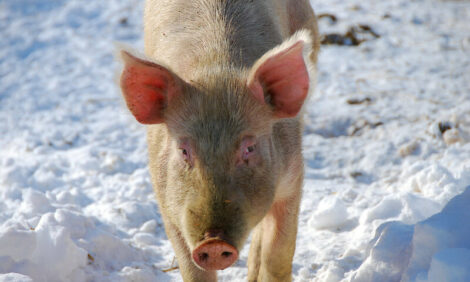



Slowing Conversion of Ammonium Nitrogen to Nitrate
CANADA - Farm-Scape: Episode 2280. Farm-Scape is a Wonderworks Canada production and is distributed courtesy of Manitoba Pork Council and Sask Pork.Farm-Scape, Episode 2280
Scientists with the University of Saskatchewan are wrapping up a two year project intended to evaluate the effectiveness of nitrification inhibitors in fields fertilized with swine manure.
A two year graduate student study, conducted as part of the University of Saskatchewan's long term effort to evaluate the use of swine manure fertilizer, examined the value of adding compounds to liquid swine manure which slow the conversion of ammonium nitrogen to nitrate in the soil.
Field work was conducted during the 2005 and 2006 crops years at Dixon, one of four long term research sites maintained by the University of Saskatchewan's Department of Soil Science.
The intent is to improve the recovery of manure nitrogen by crops.
University of Saskatchewan research scientist Dr. Jeff Schoenau says preliminary indications are that, while the compounds were effective in slowing nitrification, their effect on yield was limited.
What the nitrification inhibitor does is it inhibits the conversion of ammonium nitrogen to nitrate in the soil and the idea is that nitrogen in the ammonium form is less susceptible to loss than in the nitrate form.
The results of our first field season showed that the inhibitor was effective in keeping the nitrogen in the ammonium form in the soil.
However it appears that, in terms of actually having a significant effect on yield, that didn't appear to be the case, probably just because in our particular trial that year and seems to be the case again in 2006 the potential for losses weren't that high.
So the inhibitor certainly does what it's intended to do but I think it would probably be most effective in a situation where you had the potential for high loses of nitrogen, perhaps higher than what we saw in our two years of the study. Dr. Schoenau notes data collected during the 2006 growing season is still being analyzed.
For Farmscape.Ca, I'm Bruce Cochrane.








